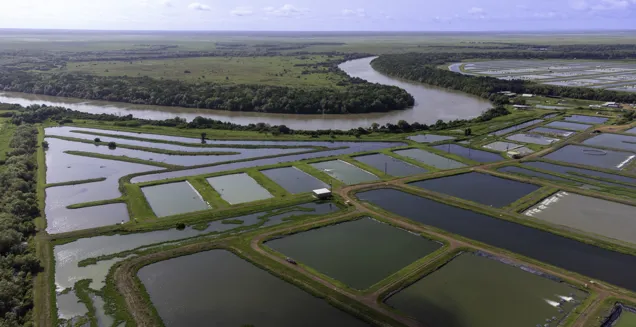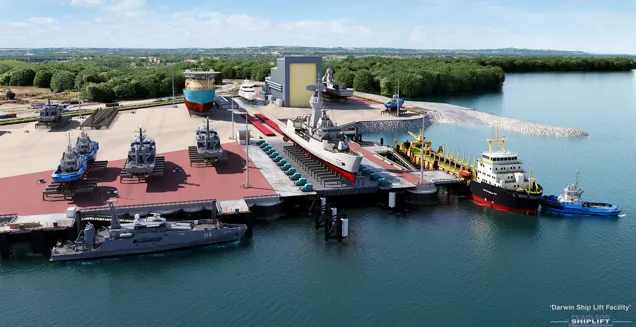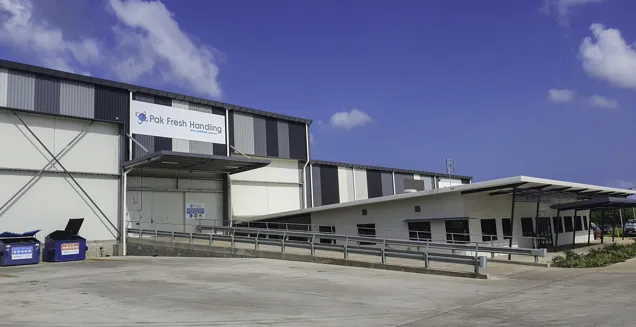Education and Community Precinct and Casuarina Campus Project
Discover NAIF's $151.5m loan to Charles Darwin University (CDU) Education and Community Precinct and Casuarina Campus Project in Darwin, Northern Territory.
June 2020
Social Infrastructure
Darwin, Northern Territory
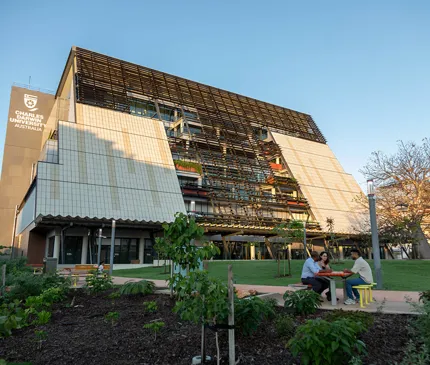
Our commitment of up to $151.5 million in financing has supported the development of a new city campus for Charles Darwin University in the heart of Darwin. The Danala Education and Community Precinct has revitalised the CBD, providing state-of-the-art teaching and research facilities, public spaces, and an integrated library. The project has strengthened the university’s capacity to attract students, supported local employment, and contributed to long-term economic growth in the Northern Territory.
About Charles Darwin University
Charles Darwin University (CDU) is a unique institution deeply rooted in the Northern Territory. With campuses in major cities and remote locations, CDU embraces the spirit of inclusivity and resilience.
The university's commitment to the region is evident in its multi-campus, dual-sector status, and dedication to impactful training, education and research.
CDU's strategic focus on empowering its people and fostering partnerships ensures it can contribute meaningfully to the social, economic, and environmental sustainability of the Northern Territory.
Project Overview
Construction of the Charles Darwin University (CDU) Education and Community Precinct commenced in October 2020 and was officially opened in October 2024. Teaching at the new campus began in November 2024.
The precinct is delivering state-of-the-art teaching and research facilities, an integrated library, and an art gallery. It includes green spaces and shaded areas designed for Darwin’s tropical climate, as well as shared public areas for events and community use.
Located in the heart of the Darwin CBD, the precinct plays a key role in revitalising the city centre. Courses now offered at the new campus include Law, Accounting, Information and Communications Technology (ICT), and Software Engineering.
How We Helped
NAIF’s flexible financing played a critical role in progressing this complex development through to financial close. We helped to overcome barriers such as funding shortfalls, supply chain disruptions and construction cost escalation during the COVID-19 pandemic. Our tailored support ensured the project could move forward at a time when traditional lenders may not have been able to meet the same risk profile.
Public Benefit
The precinct is providing modern education facilities and helping to revitalise the Darwin CBD by bringing students into the city centre. Around 730 jobs were projected to be created during the construction phase, including on-site and off-site works.
A public-benefit assessment forecast net benefits to the Darwin economy of $599.5 million over 30 years through increased urbanisation and economic activity. The project is also forecast to support an additional 54 operational jobs a year.
Danala is made for Territorians, by Territorians, and will ensure students are getting the education they deserve in a modern facility that suits Darwin.
Professor Scott Bowman
Vice-Chancellor of Charles Darwin University
Related Links
Download the case study to learn how NAIF’s tailored finance and partnership approach helped deliver this project and what it demonstrates for future investment in infrastructure projects in northern Australia.
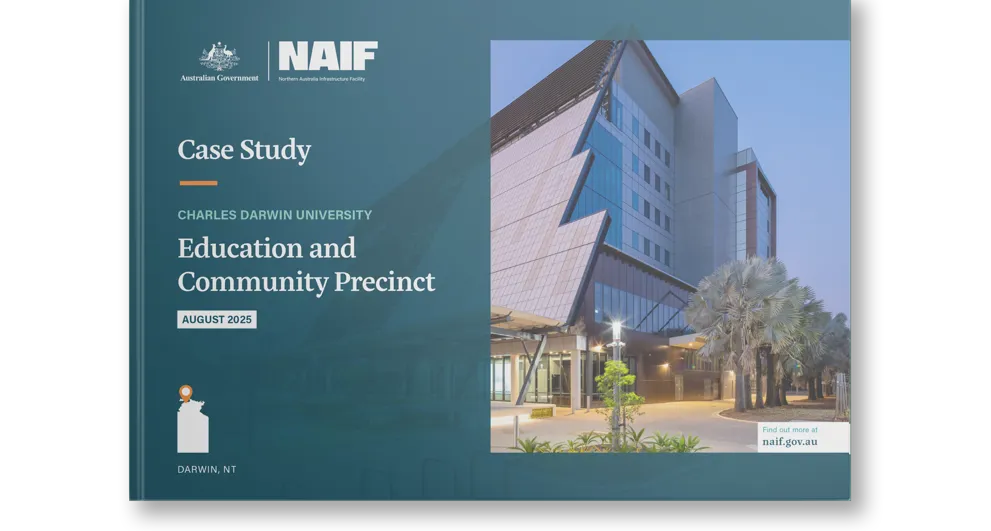
Indigenous Engagement
- The Larrakia people
Darwin, known traditionally as Garramilla, is on Larrakia Country in the Northern Territory. Larrakia Country spans from Cox Peninsula in the west, Gunn Point in the north, the Adelaide River in the east, and as far south as Manton Dam. The original name of the language group now known as Larrakia is Gulumirrgin, the Larrakia are saltwater people, they have a rich history of trade, intermarriage, and shared ceremony with neighbouring groups such as the Tiwi, Wagait, and Wulna. Important cultural sites like Stokes Hill, Mindil Beach, Rapid Creek and Casuarina Beach remain sacred to the Larrakia and are part of an enduring cultural landscape. The Larrakia Traditional Owners are pivotal to the Darwin community including the Larrakia Nation Aboriginal Corporation (LNAC) who play a central role in preserving culture, protecting country, and supporting the social and economic advancement of Larrakia people on Larrakia Country.
Indigenous Engagement Strategy Commitments
- Committed to ongoing engagement with the Larrakia community to showcase culture and establish cultural protocols, including a comprehensive review of the CDU Reconciliation Action Plan and cultural training for new employees.
- Support several internal initiatives to build CDU staff cultural competencies and cultural safety.
- A 3% First Nations procurement target during construction with supporting obligations with the head contractor to support opportunities for First Nations supply chains.
- An aspirational target of 8.8% First Nations employment during construction supported by enhancing internal First Nations recruitment, retention and pathway strategies across the university.
Indigenous Engagement Summary Outcomes
- In 2023, CDU engaged with the Larrakia community in the design of the Education and Community Precinct. Key outcomes included the Gulumeerain (Larrakia) Seasonal Calendar at the entrance, dual-language (English and Larrakia) room naming and signage showcasing Larrakia culture including the installation of seasonal markers around the precinct’s heritage listed boab tree, and the naming of the precinct, Danala, meaning ‘dillybag’ – a place to house knowledge.
- Additionally, the contractor DCOH (formerly Halikos) achieved 13.2% First Nations employment supporting tradespeople and business administration roles during construction and procured over $500,000 towards First Nations businesses, reaching 12% First Nations spend in 2023. Whilst in construction DCOH supported their First Nations staff with mentoring initiatives, in collaboration with local First Nations organisations.
- In 2024, during construction, DCOH spent 8.6% of the total procurement spend with First Nations businesses and achieved 12.7% First Nations employment, enabled by various training programs for tradespeople, apprentices, trainees and school-based trainees.
